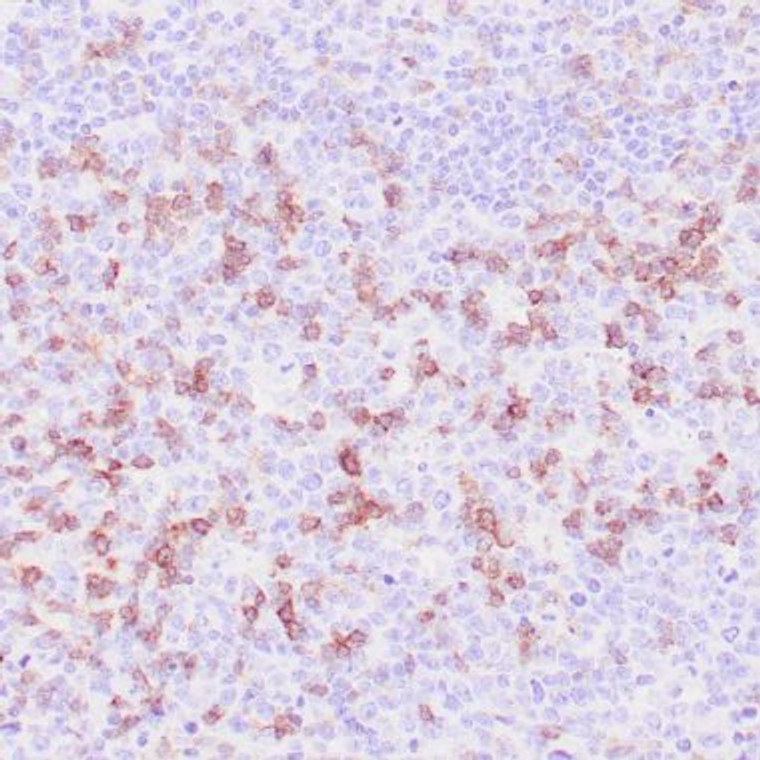| Host: |
Mouse |
| Applications: |
IHC-P |
| Reactivity: |
Human |
| Note: |
STRICTLY FOR FURTHER SCIENTIFIC RESEARCH USE ONLY (RUO). MUST NOT TO BE USED IN DIAGNOSTIC OR THERAPEUTIC APPLICATIONS. |
| Short Description: |
Mouse monoclonal antibody anti-Perforin (413-552aa) is suitable for use in Immunohistochemistry research applications. |
| Clonality: |
Monoclonal |
| Clone ID: |
ZM159 |
| Conjugation: |
Unconjugated |
| Isotype: |
IgG2C/Kappa |
| Formulation: |
Tris-HCI buffer containing stabilizing protein (BSA) and <0.1% ProClin |
| Purification: |
Affinity purified |
| Dilution Range: |
1:100‐200 |
| Storage Instruction: |
Store at 2‐8°C for up to 24 months. Predilute: Ready to use, no reconstitution necessary. Concentrate: Use dilution range and appropriate lab‐standardized diluent. Stability after dilution: 7 days at 24°C, 3 months at 2‐8°C, 6months at ‐20°C. |
| Immunogen Region: |
413-552aa |
| Specificity: |
Positive control: Spleen |
| Immunogen: |
Recombinant human Perforin protein fragment (around aa 413-552) |
| Background | Perforin is a pore-forming protein that leads to osmotic lysis of the target cells and subsequently enables granzymes to enter the target cells and activate apoptosis. Perforin has structural and functional similarities to complement component 9 (C9). Like C9, this protein creates transmembrane tubules and is capable of lysing non-specifically a variety of target cells. It is one of the main cytolytic proteins of cytolytic granules and is known to be a key effector molecule for T-cell-and natural killer-cell-mediated cytolysis. Defects in this gene cause familial hemophagocytic lymphohistiocytosis type 2 (HPLH2) , a rare and lethal autosomal recessive disorder of early childhood. The expression of perforin is reportedly upregulated in activated CD8+ T-cells, natural killer cells and some CD4+ T-cells. |
Information sourced from Uniprot.org
12 months for antibodies. 6 months for ELISA Kits. Please see website T&Cs for further guidance






![Anti-Perforin antibody [MRQ-23] (STJ16100415) Anti-Perforin antibody [MRQ-23] (STJ16100415)](https://cdn11.bigcommerce.com/s-zso2xnchw9/images/stencil/300x300/products/149132/346753/STJ16100415_1__99087.1681998849.jpg?c=1)